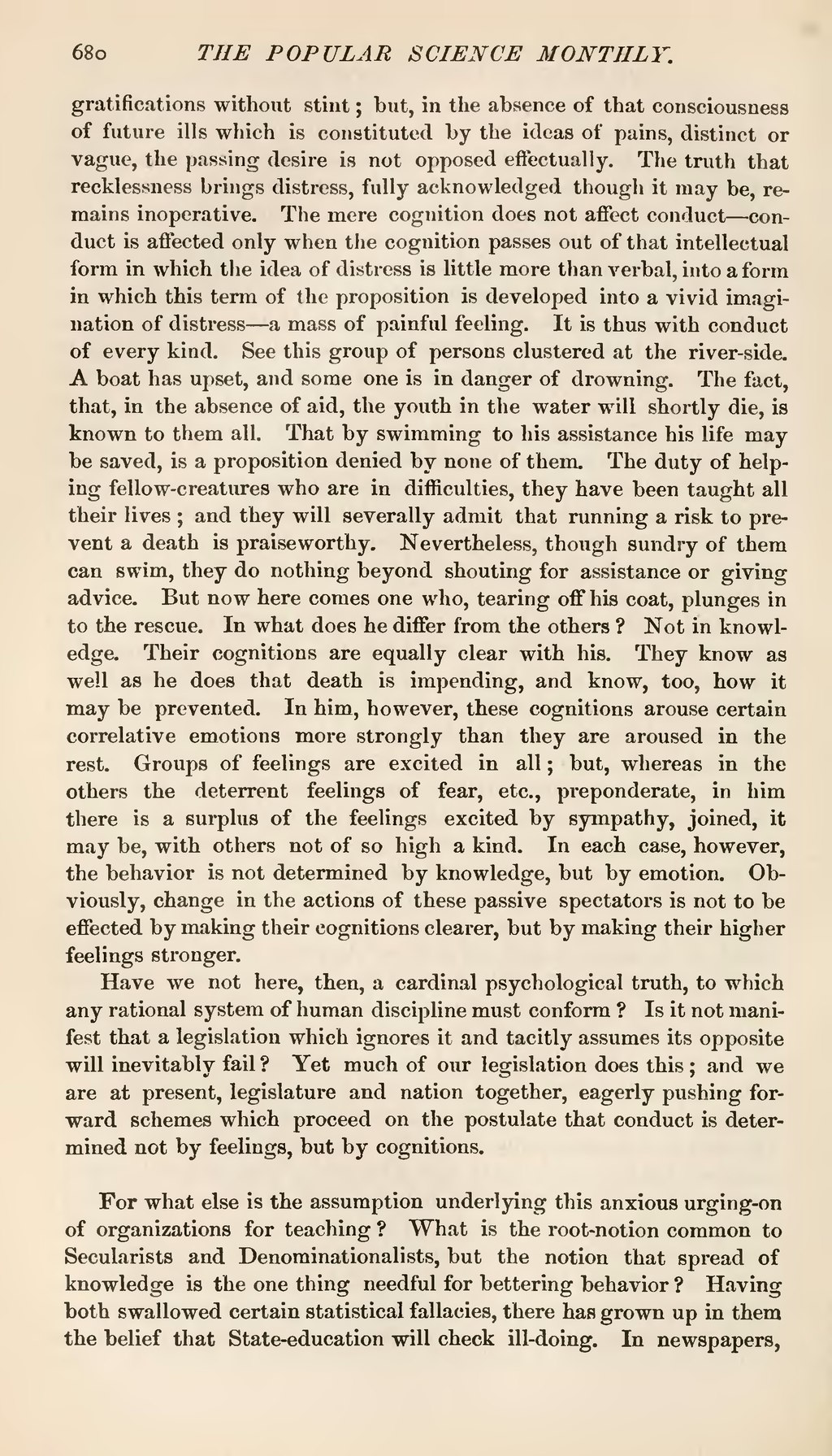gratifications without stint; but, in the absence of that consciousness of future ills which is constituted by the ideas of pains, distinct or vague, the passing desire is not opposed effectually. The truth that recklessness brings distress, fully acknowledged though it may be, remains inoperative. The mere cognition does not affect conduct—conduct is affected only when the cognition passes out of that intellectual form in which the idea of distress is little more than verbal, into a form in which this term of the proposition is developed into a vivid imagination of distress—a mass of painful feeling. It is thus with conduct of every kind. See this group of persons clustered at the river-side. A boat has upset, and some one is in danger of drowning. The fact, that, in the absence of aid, the youth in the water will shortly die, is known to them all. That by swimming to his assistance his life may be saved, is a proposition denied by none of them. The duty of helping fellow-creatures who are in difficulties, they have been taught all their lives; and they will severally admit that running a risk to prevent a death is praiseworthy. Nevertheless, though sundry of them can swim, they do nothing beyond shouting for assistance or giving advice. But now here comes one who, tearing off his coat, plunges in to the rescue. In what does he differ from the others? Not in knowledge. Their cognitions are equally clear with his. They know as well as he does that death is impending, and know, too, how it may be prevented. In him, however, these cognitions arouse certain correlative emotions more strongly than they are aroused in the rest. Groups of feelings are excited in all; but, whereas in the others the deterrent feelings of fear, etc., preponderate, in him there is a surplus of the feelings excited by sympathy, joined, it may be, with others not of so high a kind. In each case, however, the behavior is not determined by knowledge, but by emotion. Obviously, change in the actions of these passive spectators is not to be effected by making their cognitions clearer, but by making their higher feelings stronger.
Have we not here, then, a cardinal psychological truth, to which any rational system of human discipline must conform? Is it not manifest that a legislation which ignores it and tacitly assumes its opposite will inevitably fail? Yet much of our legislation does this: and we are at present, legislature and nation together, eagerly pushing forward schemes which proceed on the postulate that conduct is determined not by feelings, but by cognitions.
For what else is the assumption underlying this anxious urging-on of organizations for teaching? What is the root-notion common to Secularists and Denominationalists, but the notion that spread of knowledge is the one thing needful for bettering behavior? Having both swallowed certain statistical fallacies, there has grown up in them the belief that State-education will check ill-doing. In newspapers,
